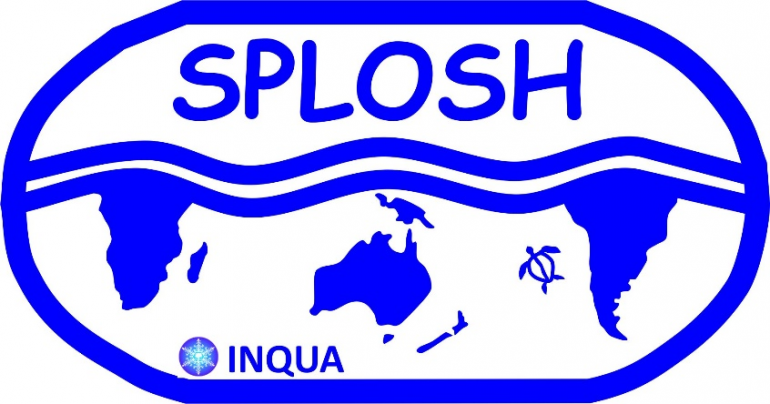Project 2001F: Submerged palaeolandscapes of the Southern Hemisphere (SPLOSH)
Details

Primary Lead: Ingrid
Ward, University of Western Australia
Co-leads: Peter
Veth, University of Western Australia
Helen
Farr, University of Southampton
Fraser
Sturt, University of Southampton
Andrew
Green, University of KwaZulu-Natal
Hayley
Cawthra, Council for Geoscience and Nelson Mandela University
Aim:
The
SPLOSH Project aims to increase awareness of submerged landscapes and
environmental changes in the Southern Hemisphere (SH), and help provide a
platform for scientific exchange and interdisciplinary collaboration to help
strengthen the importance of research in this region. Common themes such as sea-level change,
coastal landform evolution, human dispersals and coastal resources use will be
explored through a series of workshops and synthesis outputs, with a particular
emphasis on Indigenous perspectives and connections with Sea Country, all aimed
towards improved science, knowledge and resource management of a shared
heritage.
Introduction: The
study of submerged coastal landscapes and human occupation records has rapidly
emerged as a key topic in Quaternary science in the last decade aided by new
and higher-resolution technologies and focused research programs. These are
only beginning to be translated into the SH where the study of submerged
palaeolandscapes faces specific challenges and unique opportunities. The largely ice-free Southern Hemisphere with
its vast oceans and large areas of arid, tropical and sub-tropical zones offers
new biogeographical perspectives into sea-level change and early human coastal
resource use.
Indigenous perspectives on submerged landscapes are of
particular importance to this region.
SPLOSH seeks to increase synergies between Indigenous partners and
scientists from developing countries in the global discourse on submerged
landscapes and help set the agenda for Best Practice collaboration in this
field.
Through a series of dedicated workshops and building from
recent projects across the Southern Hemisphere, SPLOSH seeks to explore a
number of questions including:
1. How does
the greater oceanic area of the SH influence the nature and preservation of
submerged landscapes, and how these are studied?
2. How can we
incorporate concerns, interests, knowledge, traditions, and perspectives of
First Nations people in submerged landscapes research?
3. How do
different biogeographical perspectives from the SH influence our understanding
of human migration and past coastal resource use?
4. What new
challenges and opportunities that can arise from SPLOSH.
In addition to workshops, a website will serve as a central
dissemination ‘blackboard’ for workshop events, newsletters, research and
publications, as well as collaboration and outreach including links to other
existing and future sites on submerged sites.
The website will eventually host an interactive map of known
sites/project areas across the SH, allowing a virtual insight into ongoing and
new research on submerged landscapes in this region.
Anticipated Outputs:
Project outputs include but are not
necessarily limited to:
• A website
with links to current and emerging projects in the SH. The website will also
act as an archive for workshop discussions.
• An online
map showing spatial extent of known surveys and projects.
• Publications
based on themed workshop discussions.
• A Data
Management Plan for data stewardship and Open Access. Included in this is the
acknowledgement of confidentiality of Traditional Knowledge to ensure that any
Open Access meets the free prior and informed consent requirements for each
nation involved in the project.
Project Sponsorship: Oceans Institute, University of Western
Australia
Planned meetings / important dates: As part of the aim to help raise awareness on
submerged landscape research across the SH and help build collaborative links
between people and working in this sphere, we intend to host annual
workshops. This years’ meeting will be
necessarily be undertaken online as a Webinar or Zoom meeting because of COVID
but future meetings will also making use of videoconferencing.
Contact: Please
email the Coastal and Marine Processes Commission ([email protected]) if you would
like to be put in touch with the leaders of this project

